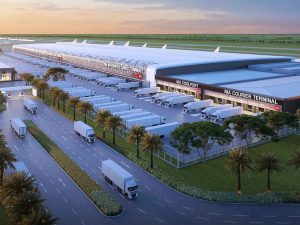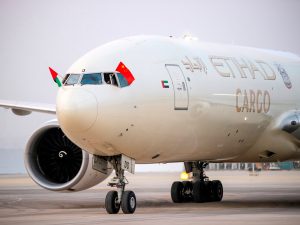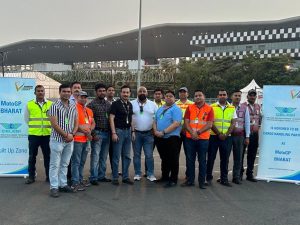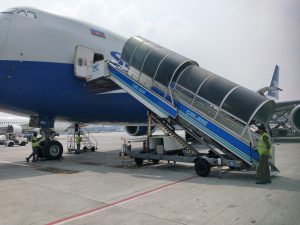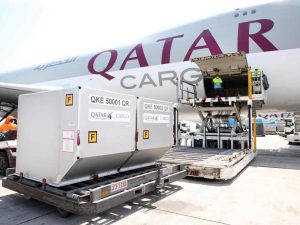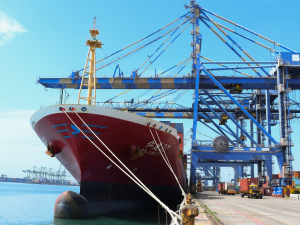The Noida International Airport (NIA) unveiled its International Air Transport Association (IATA) code as DXN. The airport is expected to launch flights by the end of 2024. The code will become active once the airport starts operations. The IATA codes are unique to each individual airport and serve as essential identifiers for airports globally to prevent any ambiguity between countries and cities. These codes are featured not only on passengers’ travel documents but are a crucial element in various other communications on a daily basis across flight schedules, ticketing, and baggage handling from one airport to another.
Read More »Etihad expands network, to begin Abu Dhabi to Mumbai route
Starting from October 29, 2023, during the Northern Winter 2023/24 season launch, Etihad Airways will enhance its service on the Abu Dhabi to Mumbai route. The airlines will introduce a fourth daily flight on this route, with flights designated as EY196/197. These additional flights will be operated using Airbus A320 or A321 aircraft. The Abu Dhabi-based airline currently has many unutilized seats, amounting to 10,000 per week out of the total 50,000 allocated seats. By expanding its services and filling these unutilized seats, Etihad Airways is gearing up to enhance its presence and connectivity in the Indian market. In partnership with Abu Dhabi Air Arabia, Etihad operates 165 weekly flights to 10 important gateways across the Indian market.
Read More »Celebi handles nearly 900 tonnes EXIM cargo for MotoGP event
Çelebi Delhi Cargo Terminal has successfully handled Import and Export cargo of around 150 pieces each way, consisting of about 40 superbikes and amounting to nearly 900 tons of inbound and outbound cargo for the MotoGP Bharat organised at Buddha International Circuit, Greater Noida. This extensive operation involved impeccable planning, stakeholder alignment and coordination, high collaboration and efficient handling of all EXIM consignments for the thrilling motorsport event. The successful handling of ultra-customised sports vehicles, which use advanced electronics and the very latest materials, requires a range of specialized equipment and infrastructure. Çelebi was well-prepared with main deck loaders, lower deck loaders, heavy-duty forklifts, flatbed trucks, experienced operators, and real-time coordination with all stakeholders, ensuring a seamless cargo operation. In total, 8 wide-body freighters (747s) were involved in this operation, with three different aircraft operators. Mr. Kamesh Peri, CEO of Çelebi Delhi Cargo Terminal, expressed his enthusiasm for Çelebi’s role in India’s first-ever MotoGP event, stating, “We are thrilled to have facilitated our expertise during India’s first-time hosting of MotoGP. Çelebi delivered seamless cargo handling services, underscoring our unwavering commitment to excellence. With our state-of-the-art equipment and highly skilled & motivated team, Çelebi was highly equipped to handle special cargo handling requirements. We are proud to have contributed our services to the successful hosting of MotoGP Bharat, ensuring that this remarkable event ran smoothly.”
Read More »Bengaluru overtakes Delhi-NCR, Mumbai in warehousing rental growth in H1 2023
Bengaluru saw the highest rise in warehouse rents among Indian cities, with an annual average jump of 7.5 percent, overtaking Delhi-NCR and Mumbai in the top 10 Asia-Pacific (APAC) warehousing markets in H1 2023, a report by Knight Frank India has said. The Asia-Pacific Logistics Highlight H1 2023 report said that the rental growth was up 10.4 percent from the same period of the previous year. While rent in Bengaluru, ranked sixth in the APAC list, rose to Rs 21.5 per sq ft a month, Delhi-NCR, which is positioned eighth, reported a 6.6 percent jump from the previous year at Rs 20.20 per sq ft per month. Manila tops the list with a 49.3 percent year-on-year (YoY) jum in rent followed by Sydney and Brisbane at 38.6 percent and 23.8 percent, respectively. Bangkok ranked last with rentals dropping 0.2 percent.
Read More »Crown Worldwide opens storage facility in Mumbai
Crown Worldwide Group has inaugurated the Crown Records Management Vault and Fine Art Vault Storage Facility in Mumbai. The facility provides cutting-edge technology with thoughtful design, resulting in enhanced security and storage solutions. This remarkable 4-storey structure spans 27,616 sq. ft., housing dedicated zones for fine art and vital records, including sorting areas, secure destruction zones, and a fine art gallery. The introduction of this facility represents a significant expansion of Crown Records Management’s service offerings in Mumbai and its surrounding areas, creating new employment opportunities within the region. Crown’s 27-year presence in India has flourished across 13 locations, including New Delhi, Ludhiana, Chandigarh, Mumbai, Pune, Ahmedabad, Indore, Bangalore, Hyderabad, Chennai, Coimbatore, Bhubaneswar, and Kolkata. This new facility deepens Crown’s engagement with industries where effective business information management and art preservation are paramount.
Read More »DIAL efficiently handles high-value shipments for MotoGP event
Delhi International Airport Limited (DIAL) handled the transportation of high-value Superbikes for recently concluded Bharat MotoGP event, using three Silk Way West Airlines and one ATLAS Air Freighter Aircraft, amounting to a total of 155 pieces and approximately 380 metric tons of cargo. DIAL handled four full freighter shipments from 14th to 17th Sep 2023. The efficient and timely handling of the shipments has been managed by DIAL in partnership with Celebi and RE Rogers. A dedicated team comprising DIAL, Celebi (Cargo Terminal Operator), ground handling agents (BWFS & Celebi), and RE Rogers (freight forwarder) closely monitored the entire process, from freighter offloading to the release of the Superbike consignments. To ensure the secure handling of the motorbikes, vehicle entry passes were issued, granting direct access for transport vehicles to the ramp and minimizing the need for multiple handling. The entire movement was escorted from Delhi International Airport to the Buddha International Circuit, ensuring a safe and efficient journey.
Read More »Qatar Airways Cargo celebrates 20 years of global operations
Qatar Airways Cargo, which is celebrating two decades of operations, has continuously expanded its fleet, network, and product portfolio, becoming the world’s number one cargo carrier since it took delivery of its first freighter, an Airbus A300-600 converted freighter, in 2003. Qatar Airways began regular operations to Amsterdam and Chennai, and shortly thereafter to New Delhi. Today, the cargo airline operates more than 160 belly-hold and over 70 freighter destinations with over 200 passenger aircraft and 31 dedicated cargo freighters, says an official release. Elisabeth Oudkerk, Senior Vice-President, Cargo Sales and Network Planning says: “As Qatar Airways Cargo celebrates 20 years of freighter operations, we extend our heartfelt thanks to our customers for their continuous trust in our services. We take immense pride in our history and anticipate contributing to the promising future of air freight.” With the launch of its Next Generation strategy, Qatar Airways Cargo has defined its role in the air cargo industry by bringing a fresh and innovative approach to business across its network and operations through enhanced products and services, cutting-edge technology, a commitment to sustainability and diversity, investing in existing talent and attracting new ones.
Read More »Air Canada orders B787-10s, expects delivery in Q42025
Air Canada has placed a new order for 18 Boeing 787-10 Dreamliner aircraft. This order substitutes a previously announced agreement to purchase two Boeing 777 freighter aircraft, and Air Canada will no longer take delivery of the two freighters. “Deliveries of the new aircraft are scheduled to begin in Q42025 with the last aircraft scheduled for delivery in Q1 2027,” says an official release. They will be used to replace older, less efficient wide-body aircraft currently in the Air Canada fleet. The agreement also includes options for another 12 Boeing 787-10 aircraft, which will provide flexibility for growth to meet future customer demand.” Michael Rousseau, President and Chief Executive Officer, Air Canada says: “Air Canada has made investing in the passenger experience a core priority. Our experience shows customers greatly enjoy flying on the Dreamliner, so we are pleased to offer them a larger version of this popular aircraft, which will premiere a new, state-of-the-art interior cabin design. As importantly, the 787 is highly fuel efficient and will generate operational savings as well as support our sustainability goals of reducing emissions.”
Read More »Air France KLM orders 50 new A350 aircraft
The Air France KLM Group has placed an order to purchase 50 Airbus A350-900 and A350-1000 aircraft with purchase rights for 40 additional aircraft. The deliveries are expected between 2026 to 2030, says an official release. “This will be an evolutionary order, providing the Group with flexibility to allocate aircraft within its portfolio of airlines, according to market dynamics and local regulatory conditions,” the release adds. Benjamin Smith, CEO, Air France-KLM says, “This new order will be a major step in the renewal of the Group’s fleet. The Airbus A350 is a state-of-the-art aircraft with an excellent track record at Air France where it has rapidly become a favourite among passengers and crew since its entry into service in 2019. It is the perfect fit for the network needs of the Group and boasts outstanding performances: it is a quieter, more fuel-efficient and more cost-effective aircraft compared to previous generations. It will be instrumental in helping the Group reach our ambitious sustainability targets including (-) 30 percent CO2 emissions per passenger kilometre by 2030.”
Read More »DP World begins Far East India Express service in Chennai
DP World marked milestone with the berthing of the maiden voyage of the Far East India Express (FIX1) service at its terminal in Chennai. The FIX1 service is a collaborative endeavor involving four consortium partners, with Sinotrans deploying two vessels and TS Line, Sealead, and SITC each contributing one vessel to the fleet. FIX1 is the first-ever service to establish a direct shipping connection between Chennai and China, reducing transit time by 8 days, by bypassing traditional transshipment ports. The service’s rotation is strategically designed to optimise the supply chain efficiencies, covering Ports Qingdao, Shanghai, Ningbo, and Shekou ports in China, the Chennai and Vizag ports in India, and Port Kelang in Malaysia (East Bound). Providing direct, swift, and seamless connectivity, the service will provide greater logistical reliability to traders across the East Asia corridor. The service will be further complimented by DP World’s best-in-class logistics solutions and greater supply chain efficiency to boost trade in the region. The FIX1 service will be the third weekly service sailing from DP World Chennai for the East region. The service’s key beneficiaries will be the large enterprises along with the SME and MSME clusters across the South and East Indian states of Tamil Nadu, Karnataka, Andhra Pradesh, Telangana, West Bengal, Bihar and Odissa. DP World’s vast multimodal network will allow these clusters to link with the port terminal via road and rail connectivity. Commemorating the occasion, DP World Chennai berthed the Renjian 27 vessel carrying a load of 3814 TEUs (2350 Moves) on 11th September 2023. The company also hosted a small felicitation ceremony at DP World Chennai premises, honouring the vessel and its Captain, Zhang Qin in the presence of Shiva …
Read More » Cargo Breaking News
Cargo Breaking News
